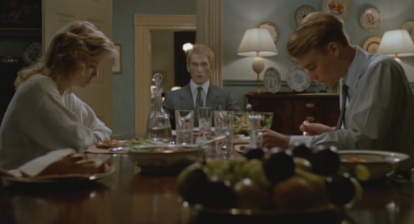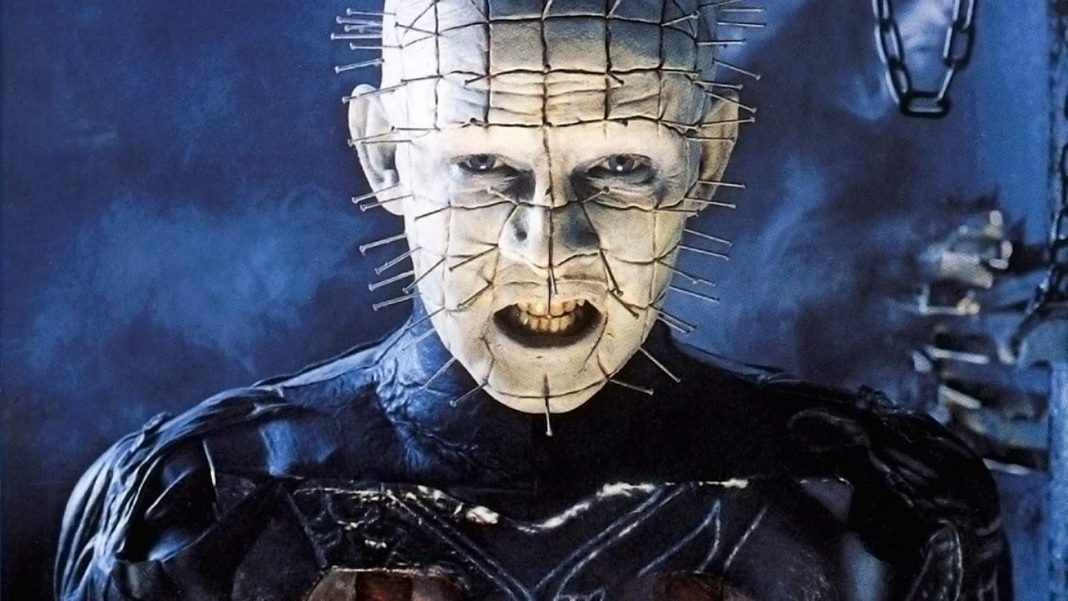David Cronenberg’s Videodrome was very much a product of its era. It was made during a major boom in television, which was taking over and finally made it clear that it was not a passing fad and that it was here to stay. More and more channels were coming about. Cable was on the rise. There suddenly seemed to be no end to it and no limit to what could be shown. And that is of course a large part of what Videodrome is all about. The other thing happening at this time was the rise of VHS. All of a sudden, television could be pirated and recorded and watched at the viewer’s leisure. You had control over your television now and had yet another way to work it into your life.
The movie’s overall theme is actually stated very bluntly by larger-than-life TV persona Brian O’Blivion. He says “television is reality, and reality is less than television.” More than anything, that seems to be what Videodrome is made to address. It was something that had possibly kicked off during Vietnam, when viewers were subjected to real, actual violence on the screen for the first time in their lives. They were seeing horrible things, new things they had never seen and experiences they never felt before. This snowballed a sense of desensitization that spread quickly until television became the new method of experience. It was the new way that people took in the world, it was the way people received their information.
It led to a lack of sensitivity, which is what Videodrome feeds into. The film took the concept of TV as the new method of experience, the new flesh, and applied it literally. This application led to it becoming one of the best body horror movies ever made. It showcased an actual, physical merging of television and the human form. It’s a gradual merging and there are a lot of reasons for this. Max Renn, the protagonist who owns the TV station that taps into the Videodrome signal, does not want to believe what he is looking at is real. He wants to provide edgy entertainment. He wants to give audiences something that looks as real as possible, but he doesn’t want to think that it is really happening. He casually says “better on TV than on the streets.”
Max represents the audience in this way. He talks big and has an undeniable curiosity, but for him there is such a thing as too much. This is a really interesting way to deal with a character who produces violent entertainment, or even the owner of a television network in general. This type of person is generally depicted as much older, sterner and more authoritative than James Woods comes across. Max is an unassuming, quiet person, which makes it all the more interesting that he does what he does. At the same time, we understand him. He wants to give the people something they will watch, something they will talk about and—most importantly—something that will keep them watching.
As Deborah Harry’s character Nicki Brand says “We live in a heightened state of overstimulation.” In the case of her character it is particularly true. Nicki becomes the face of Videodrome as the film goes on. When it wants Max to do something, when it tries to connect with Max, it uses her image and her voice. This makes sense, because Nicki is in many ways the core audience. She makes claims that overstimulation is unhealthy, but in actuality she cannot get enough of the sexualization of violence. When she has her intimate scene with Max, she makes him put out a cigarette on her skin and then even begs him to cut her. She not only uses Videodrome as a warm-up for sex, but she cannot actually have sex without some accompanying form of violence.
This leads to another major point of Videodrome: the effect of the horror film on the viewer. As long as there have been horror movies there have been people complaining that horror movies affect people in negative ways. Religious groups, outraged parents and right-wing politicians have always blamed violent media for causing violent actions. It’s worrisome, at first, that this seems to be adapted into a major plot point. Because in the context of Videodrome it appears at first to be right. After Max watches the broadcast, it has an effect on him, both mentally and physically. He not only can’t shake the disturbing imagery, but Videodrome begins to physically transform him as well.
This is where Rick Baker’s fantastic imagery comes into play. We have television screens with human skin, a gun made out of flesh and wire, and so much more. Probably the most infamous effect in Videodrome is the yonic slit that appears in Max’s chest that allows videotapes—and guns—to be inserted. He essentially grows a vagina in his chest, cementing the merging of flesh with television as the same act effectively transforms him into a human VCR.
The real point and power of Videodrome becomes clear in the third act. All fears that Videodrome is about the effect of violent entertainment on the masses are subsided when it’s revealed that the network is not actually a foreign signal, it was concocted as a right-wing invention to eliminate the sick-minded individuals that the men who created it deemed morally corrupt. It’s a broadcast designed to kill the sort of people that would watch such a thing to begin with. The Videodrome signal induces a brain tumor in the viewer. The tumor causes the visions. The connection of the body to the mind is at the core of all of Cronenberg’s early work. This isn’t a movie telling you to watch what you watch. Instead, the revelation of a signal designed by hyopcrites as a way to purge those they consider unfit for modern society just takes an already brilliant story to a whole new level.
Videodrome was a body horror movie that not only redefined what could be done with the sub-genre from a story perspective, but from a visual one as well. There are things in the film that no one had seen before. There are some that no one has even seen since. It’s a movie about television, about the effect of not only what we experience and how we experience it but what we are told we should experience. In some ways it’s the most Cronenbergian out of the director’s entire filmography. This is a philosophical, dreamlike, disturbing, evocative feature that is as powerful now in our age of streaming content and infinite channels as it was when it was first released. It’s hard to imagine a time when it won’t be relevant, so long live Videodrome. Long live the new flesh!






